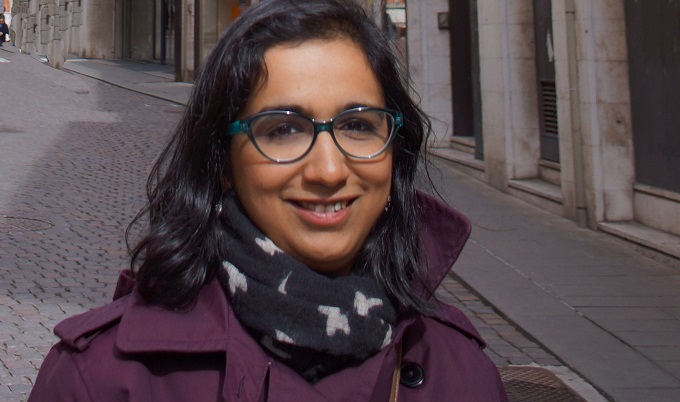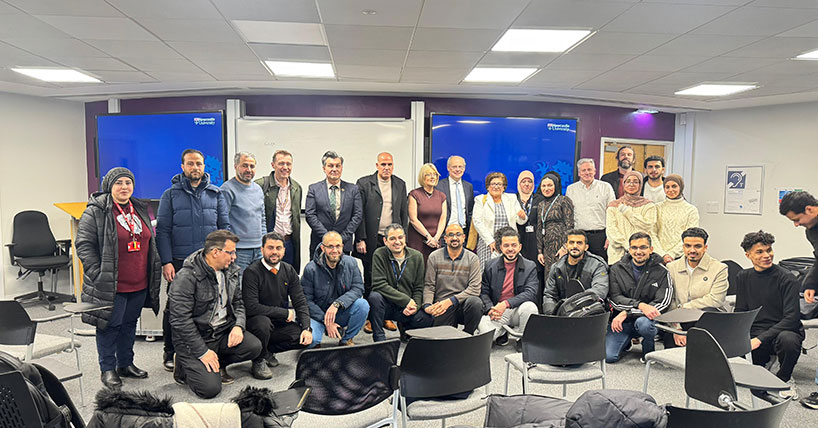arranged marriages 2
Modern British Indians are adapting traditional arranged marriages
Published on: 27 April 2021
Many British Indians are moving away from traditional arranged marriages and creating their own practices to suit individual circumstances, ambitions and identity.
Adapting cultural norms
In a new book, ‘Learning to Love: Arranged Marriages and the British Indian Diaspora’, Dr Raksha Pande, Senior Lecturer in Newcastle University's School of Geography, Politics and Sociology, discusses how instead of being wedded to traditions, many British Indians have adapted many of the cultural norms surrounding arranged marriage.
The book moves beyond stereotypes that often confuse arranged marriages with forced marriages. Using real life stories of marriages among British Indians, it shows the diversity of arrangements and the ways in which arranged marriages have changed between generations.
“You could say that there is no such thing as a traditional arranged marriage among today’s British Indians,” says Dr Pande. “Far from being a homogeneous tradition, modern arranged marriages involve a variety of different matchmaking practices where each family tailors its own version to suit modern identities and aspirations.”

A spectrum of practices
The range of practices that now exist can be thought of as a spectrum, Dr Pande argues, with the most Westernised style of courtship and marriage - including interethnic marriages and those where parents may only be involved in arranging the wedding - at one extreme, and – increasingly rarely - forced marriages at the other.
However, the research highlighted two styles of arranged marriage that lie between these two extremes and that appear to be more common in practice.
The first of these can be understood as ‘semi-arranged’, where parents who wish to help their child find a potential partner will introduce them to several candidates that they think may be a suitable match. The relationship then follows an established Westernised pattern of the couple going on dates to get to know each other better and if they fall in love, then getting married.
The other is what she calls ‘love-cum-arranged marriage’ where the person wanting to get married finds someone themselves that they like and will go on dates with them to get to know them before asking their parents to approach the parents of that person in order to arrange a formal introduction. This is then followed by family approved courtship, then marriage.
Through discussions with different generations of British Indians, Dr Pande found that attitudes towards arranged marriages began to noticeably shift for the British-born generations. “Among the first generation of British Indians, transnational arranged marriages were the norm - where they would go back to India to find a partner and there was still an expectation that their children would follow this traditional style of arranged marriage,” she says. “But there was a marked shift in the attitude of the British-born second generation, this group began to want something different for their own children. And we are moving towards a situation where now, some British Indian parents are actually surprised when their child asks them to introduce them to someone, so a lot has changed in three generations.”
Parental involvement
Parental involvement in the arrangements and approval of the prospective spouse remains important for the majority of British Indian families along with the desire to incorporate romantic love and its associated rituals within arranged marriages.
In both semi-arranged and love-cum-arranged marriages, Dr Pande’s research highlighted that the person getting married is actively involved in the arranged marriage decisions. The fact that both these forms still involve marriage within the same religion and class is what makes them arranged marriages.
Dr Pande explains: “The emphasis in arranged marriages has always been on ‘learning to love’ – where previously in traditional arranged marriages, the focus was on learning to love the partner you had chosen, or had been chosen for you, after a brief introduction.
“Nowadays, for the British-born generations, love as learning involves, first, discovering the boundaries of expectations and preferences of their family and parents - which mostly favour commonality of ethnicity and class - in relation to their future marriage partner, and second, and more significantly, putting that learning into practice by self-censure and falling in love with someone their parents would approve of.”
Introductions to potential spouses have traditionally taken place through the parents’ or wider family’s own networks, but in recent years this has shifted online and a whole industry has sprung up to facilitate this, with websites specifically catering for those who wish to find someone to marry. Social media platforms such as Facebook and Instagram are also becoming popular venues to meet a future partner. These are often viewed either by young people themselves, or their parents - or often, both.
Dr Pande added: “The key thing that came out of my conversations with British Indians about arranged marriages was that they felt it was really important to balance the varying needs of the young person getting married and the parents. They are keen to continue some of the conventions around arranged marriages, as they recognise it is part of their Indian culture, but in this hybrid form where they adapt different elements to suit them. Technology and the growth of social media is helping them make these changes even faster.”
‘Learning to Love: Arranged Marriages and the British Indian Diaspora’ by Dr Raksha Pande. Rutgers University Press, $27.95, 978-0-8135-9963-2 rutgersuniversitypress.org



